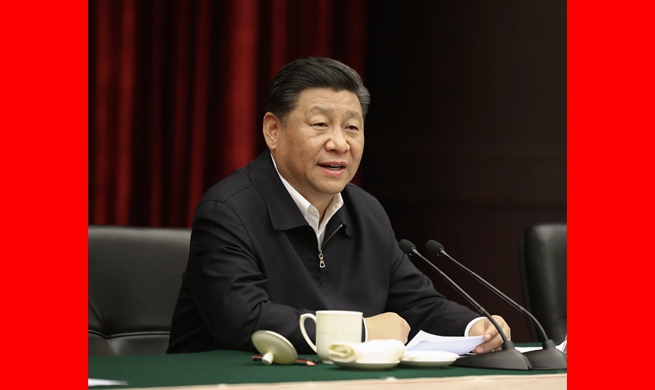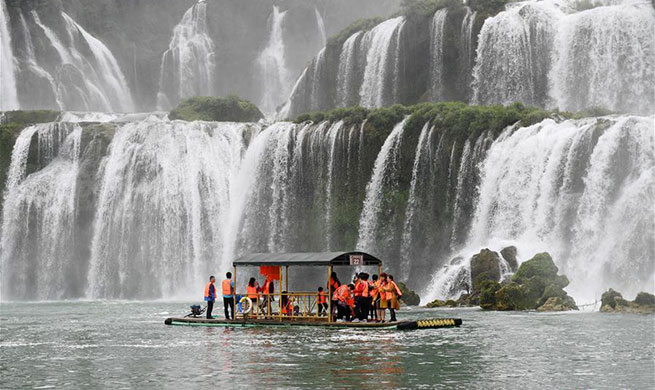SYDNEY, April 17 (Xinhua) -- Microsoft announced on Wednesday to offer a grant to the Queensland University of Technology's (QUT) Institute for Future Environments and the Australian Institute for Marine Science, to design an artificially intelligent (AI) system that can quickly process data from the nation's iconic Great Barrier Reef using cloud computing services.
Although aerial drones have been used in Australia for the past two years to monitor the environmental health of Great Barrier Reef, which covers an area of over 2,300 square km with about 3,000 reefs, the sheer size and scale of the operation has made it difficult for researchers to evaluate the data.
Known as the Microsoft AI for Earth program, the project uses specialized hyperspectral cameras that correlate information with underwater data to identify the presence of threats like algae and coral bleaching.
"Processing Gigabytes of hyperspectral imagery is time-consuming," QUT's aeronautical engineer and Associate Professor Felipe Gonzalez said.
"On a regular desktop PC, processing the data will take months."
"You really need to scale up, with the help of cloud services and tools services provided by Microsoft AI for Earth and Azure we can do this within days or hours for the smaller reefs."
A standard camera captures images using just three bands of the visible spectrum -- red, green and blue. Soaring above the reef at about 60 meters, the hyperspectral cameras can process 270 bands of spectral light as well as near-infrared capabilities.
"You could never get this level of resolution with a satellite or an aircraft," Gonzalez said.
With the application of the system also being used across other industries as well, such as agriculture to detect invasive weeds, Microsoft Chief Environmental Officer Lucas Joppa said "the world is seeing rapid advancements in cloud and AI solutions that are unlocking new possibilities to solve the world's most challenging problems."
"But the uptake of those solutions to understand and protect the planet is proceeding slowly, and as such, we are essentially flying blind when it comes to understanding how our planet is changing and how to best solve environmental challenges. AI can change that."
"Time is too short and current human resources are too few to solve urgent climate-related challenges without the exponential power of AI."
"By putting AI in the hands of researchers and organizations we can use important data insights to help solve issues related to water, agriculture, biodiversity and climate change," he said.













